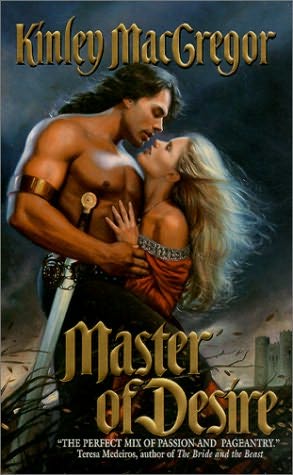Dressing Up Seth Oelbaum
[I was going to post something else entirely today—something light and fun—but I ran into some technical issues, and in any case this past weekend’s comments and page views indicate y’all would rather talk about Seth Oelbaum. So let’s talk more about Seth Oelbaum! As well as talking about Seth Oelbaum.]
Mike Meginnis’s recent post, and his follow-up comments below, clearly express his desire to pronounce some final word on “the Seth Oelbaum question” (as Reynard Seifert so cleverly phrased it), and put it all behind us. I have the highest respect for Mike as a writer and as a friend, and I understand his frustration, but I don’t think critique works that way, or should ever work that way. The price of being able to criticize is constant reappraisal, and not being able to declare conversations over.
In my comments on Seth’s last post (here, here, & here), I stated my concern that I’d said all I had to say about his writing here, was starting to repeat myself. But Mike’s post and the ensuing conversation caused me to return to certain aspects of it, and think up some new thoughts. (Surprising, I know, that I would find I had more to say.) So this is my attempt to lay out my thinking as clearly as I can. I hope you’ll add your own thoughts in the comments section below, if so inclined.
First, let’s agree that Seth’s writing is (perhaps deliberately?) somewhat inscrutable. Seth’s penchant for opacity hasn’t made it easy for people to figure out what he’s up to, even as near everyone agrees that the writing is offensive. Seth has also demonstrated little willingness to engage directly and openly with his growing ranks of critics, preferring instead to double down on his shtick.
I’ve read everything Seth has posted here (multiple times), and many of his posts at Bambi Muse, and a fair amount of his poetry. (Peter Jurmu just gave me a copy of Artifice #5, which contains some sonnets by Seth.) And while I certainly may be wrong in my interpretation, I think I understand part of what Seth is up to. (I’ve said some of this already, but please bear with me.) Forced to summarize, I’d say that Seth is appalled by how the suffering of certain people is privileged over the suffering of others. Thus he was enraged when the US media devoted extensive coverage to the Boston bombings, while it has remained relatively silent regarding the ongoing bomb-heavy conflict in Syria. He’s also enraged when Hollywood regards the Holocaust as an atrocity the Nazis did exclusively to the Jews, ignoring the simultaneous slaughter of the disabled, homosexuals, the Roma, among many others.
If this is indeed Seth’s point, then I don’t find it controversial; nor, I imagine, would you (at least in general—let’s acknowledge that Seth is not one for finer details). If one opposes massacres, then one should oppose all massacres. As such, the US media deserves criticism for privileging certain ones over others. Similarly, we ourselves are at fault when we disregard the suffering of others. We would do well to wonder how and why the world got to be like this, and what we can do to change it.
Meanwhile, we might also say: “Seth Oelbaum, you’re barking up the wrong blog! We’ve already read Karl Marx and Hannah Arendt and Noam Chomsky, and we know what you’re trying to say and already agree with you (even if we find repulsive your way of putting it)! Go post at Little Green Footballs or some other conservative blog, or at least change your shtick to acknowledge that we’re not the audience you’ve mistakenly judged us to be!”
The problem, however, is that this is not the entirety of Seth’s message. The fact that Seth keeps posting here—doubling down—indicates that Seth does not believe that we are “the wrong audience.” Furthermore, from what I’ve heard (and this is hearsay, but I’m inclined for now to believe it), “Seth is always like this”—anywhere he goes, anytime of the day, he’s always “on.” Seth has responded to total war with total abhorrence to war. And while that might not make him the most charming dinner companion (or party guest, as Mike put it), it does suggest a bit more about his motivations. Because I think Seth’s primary goal is to make other people suffer.
Vampire Conditions
 Vampire Conditions
Vampire Conditions
by Brian Allen Carr
Holler Presents, 2012
114 Pages / $9.99 Buy from Amazon or Powells
When given the choice, I mostly choose not to read literary realist fiction. I’ve been out of school for more than a year now, so I’m accustomed to having the choice. I read Brian Allen Carr’s collection Vampire Conditions anyway, and I loved it. I knew that I wanted to review the book, too, which meant that I would have to find a way to articulate why I loved it. There are two keys. First, Carr takes nothing for granted. Second, he never justifies his stories.
Carr’s refusal to take anything for granted makes him different from most writers of literary realist fiction because most of these other writers — the ones I now choose not to read — will resort to writing what they think “it’s really like” when they aren’t sure what to do next. That is to say that they often make boring events and characters (affairs and the middle-aged people who have them, unconsummated affairs and the middle-aged people who don’t have them, cancer deaths and the survivors who mourn them, suicides and the people who commit them, drugs and the people who use them) and congratulate themselves for writing the world the way it is. This takes the reader for granted because it assumes his or her interest will sustain itself without the writer’s help. This takes the world for granted because it suggests that the way we expect things to be is the way they are. Such writing fails as an imitation of reality; nothing in this life is ever much like what it’s “really like.”
I don’t believe that Brian Allen Carr writes his literary realist stories by asking himself what is likely or real. If he were doing it that way, he wouldn’t have made up Thick Bob, a grotesque who one day gave a bartender so much shit she actually tased him — and who, when he saw how much pleasure it brought the bar’s other patrons to see him tased and collapsed on the floor, proceeded not only to continue antagonizing the bartender, so that she would regularly repeat that performance, but to mount brief shows on a small stage inside the bar, wherein said bartender hits him with a bat, explodes fireworks in his clothes, throws darts at his person, and etc. If Brian Allen Carr wrote stories by asking himself what is likely, he wouldn’t have invented the protagonist of “Lucy Standing Naked,” a young boy of Asian descent, adopted by white Texans, who is named Nelson, and who is learning to play the guitar, and who sings country music better than most white boys, and who is in any case a novelty because there’s never been a famous country singer who looked like him. He wrote Nelson because Nelson was interesting. He wrote Nelson because Nelson makes a good yarn.
January 4th, 2013 / 12:00 pm
In defense of romance novels
 Piggybacking on Mike’s earlier post, I have long found it curious that the romance novel is the one genre no one wants to defend. (See, for instance, this comment.) But time was, romance was the genre.
Piggybacking on Mike’s earlier post, I have long found it curious that the romance novel is the one genre no one wants to defend. (See, for instance, this comment.) But time was, romance was the genre.
It seems to me that the contemporary romance novel—of the paperback bodice ripper variety (see right)—arrived on our shores of our literary imagination in no small part due to writers like D. H. Lawrence. And what could be more literary than Lawrence? I myself can conceive of no formal reason why a romance novel can’t be art. Indeed, I suspect that someone out there is already writing great ones. (Hell, isn’t Lolita a romance novel?)
Part of what I love about this Chicago Reader review of The Twilight Saga: Eclipse is its understanding of how Stephanie Meyers’s books and the resulting films—regardless of their quality (I haven’t read or seen them yet, though I intend to)—do partake of a larger literary tradition:
Great Sheentences: “I don’t have burnout my gearbox. I just go.” and “Everything after but is dial tone.” Joyce and Beckett, respectively. And Jean Cocteau said this: “It is excruciating to be an unbeliever with a spirit that is deeply religious.” He sleeps with a good mask, behind the click. And Mike Meginnis made something huge, ASCII, and goodly terrifying looking: Angband, or His 55 Desires.

